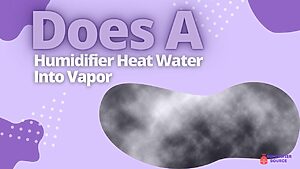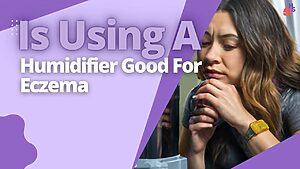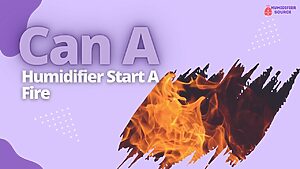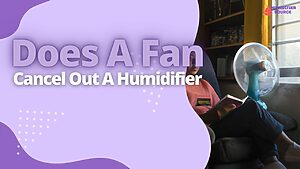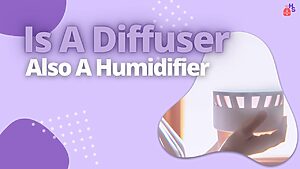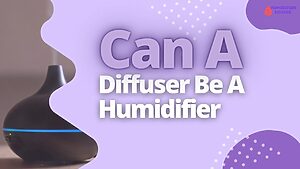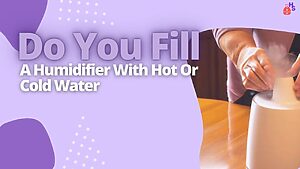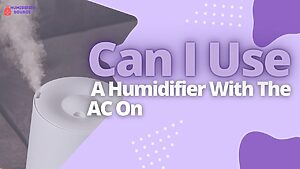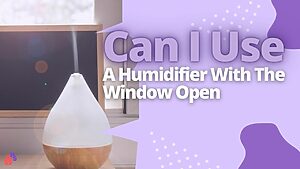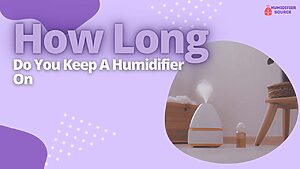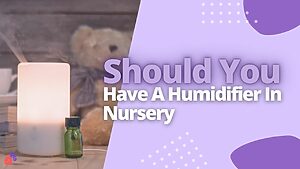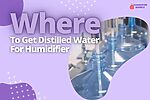Humidifiers are a great way to improve the air quality in your home, but can you use boiled water in a humidifier?
Boiling water kills bacteria and other contaminants, so using boiled water in a humidifier would be a good idea.
However, some things to consider before using boiled water in your humidifier.
Key Takeaway’s
- Yes, you can use boiled water in a humidifier.
- Boiled water will kill any bacteria or contaminants that may be present in the water.
- Boiling the water also removes any minerals that may be present in the water.
- It is important to let the boiled water cool completely before using it in the humidifier.
- Be sure to clean and disinfect your humidifier regularly.
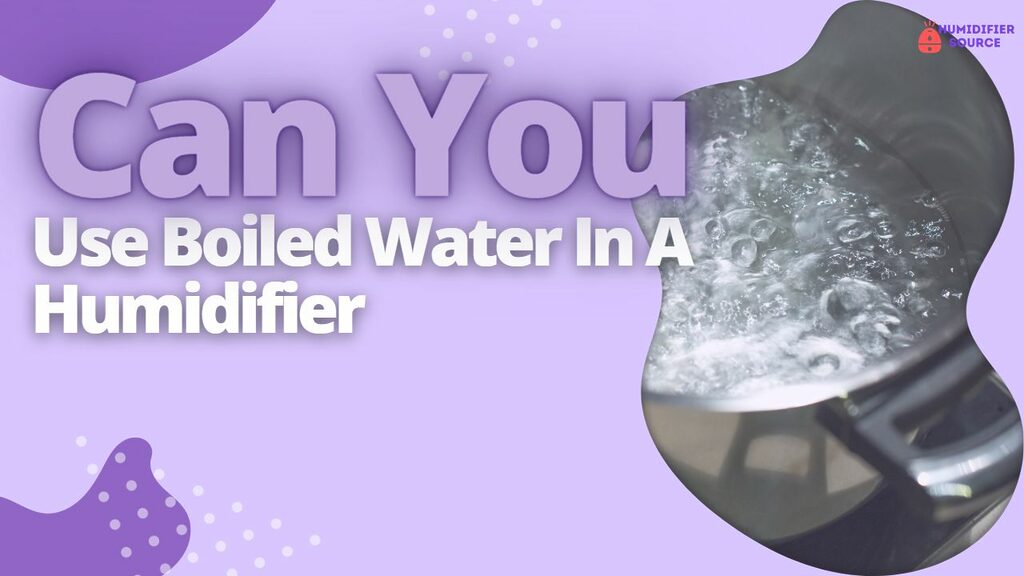
Here’s The Answer To Can You Use Boiled Water In A Humidifier
Yes, you can use boiled water in a humidifier. Boiled water is the best to use in a humidifier because it is free of minerals and other impurities that can build up and create mold or mildew.
It is crucial to use boiled water in your humidifier if you live in a region with hard water.
Calcium and magnesium are two minerals found in hard water in high concentrations; these minerals can accumulate in the humidifier over time and cause issues.
Boiling the water will remove these minerals and help keep your humidifier running smoothly. In addition, boiling the water will kill any bacteria or viruses that may be present in the water, which could cause illness if breathed in.
Boiled Water Can Be Used In A Humidifier, But It Is Not Recommended
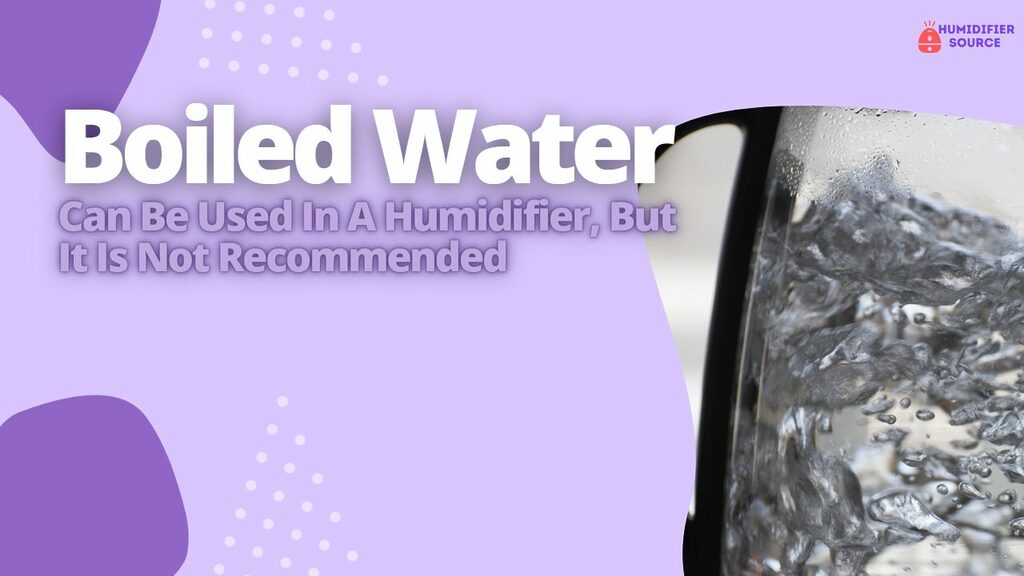
What does it mean to boil water? Water is boiled when it reaches a temperature of 212 degrees Fahrenheit (100 degrees Celsius).
Using boiled water in your humidifier isn’t recommended because the heat from the boiling process may have damaged some of the components in your humidifier.
This can cause mold and mildew inside your machine, hurting your health.
Using distilled water instead of boiled water is recommended because distilled water doesn’t contain minerals or impurities that could damage the machine.
The Reason Boiled Water Is Not Recommended Is Because It Can Cause The Humidifier To Break Down
The reason boiled water is not recommended is that it can cause the humidifier to break down. Boiled water leaves a residue on your humidifier that, over time, builds up and causes it to leak or stop working altogether. That’s no good.
If you want to use boiled water in your humidifier, first make sure you have never used tap or well water; only use distilled or boiled water from now on.
Boiled Water Can Also Lead To Mineral Build Up, Which Can Clog The Humidifier
Using boiled water in your humidifier can also lead to mineral build-up, clogging the humidifier. Clogging can cause the humidifier to break down and can lead to mold and mildew growth.
Mold and mildew growth are harmful to your health, so it’s not worth taking any chances with your lungs’ health just because you want your house smelling like a bed & breakfast in France or whatever it is that smells like that.
If You Do Use Boiled Water In Your Humidifier, Be Sure To Clean It Out Frequently
If you use boiled water in your humidifier, be sure to clean it out frequently. Clean your humidifier regularly with vinegar or a humidifier cleaner.
After each use, wipe down the base and tank of your unit with a damp cloth. Having hard water from your tap will help prevent mineral deposits from building up on the machine’s internal parts and filters.
For an extra deep clean, add a little vinegar to the boiling water before filling up the tank (about 1/2 cup) and run it through as normal.
If the tap water where you live contains a lot of minerals, consider cleaning out your machine at least once per week or after every two or three uses if you notice an increased level of white dust in your room’s air quality (a sign that mineral build-up is occurring).
You Should Also Use Distilled Water Instead Of Boiled Water, As It Will Not Lead To Any Build Up
You should also use distilled water instead of boiled water, as it will not lead to any build-up. Distilled water is pure and will come out perfectly clean and clear from a humidifier.
It can be hard to find in some places, but if you can get your hands on distilled water, it is safe for your humidifier.
How Does A Humidifier Work?
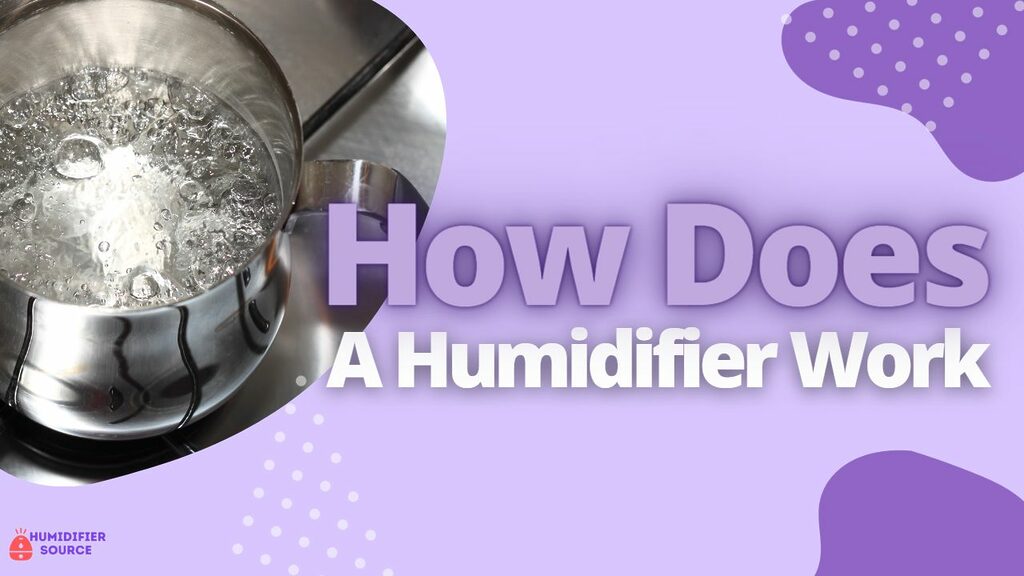
If you’re thinking of buying a humidifier, you probably want to know how it works. Humidifiers heat water and release warm, moist air into the room.
This can help relieve coughs and congestion and prevent dry skin, chapped lips, nosebleeds, and other ailments associated with dry conditions.
Humidifiers are especially helpful for those who live in areas with low relative humidity (RH), as this can lead to respiratory problems such as sinus infections or asthma attacks.
What Are The Benefits Of Using A Humidifier?
A humidifier is a device designed to increase the humidity of indoor air. Technically speaking, it does this by introducing water vapor into the air.
Humidifiers are used for a variety of reasons, including the following:
- Reduces nasal congestion and dry throat
- Helps clear up nasal passages and prevent dry skin
- Makes breathing easier during sleep
Are There Any Risks Associated With Using A Humidifier?
You may already know that humidifiers can lead to mold, mildew, and bacteria growth. However, did you know they can also result in respiratory issues? Or skin conditions? Attacks from asthma? Yes, to answer briefly.
Humidifiers are supposed to make the air more comfortable for people with respiratory illnesses like asthma or allergies. But if the humidity in your home gets too high, it might make things worse by making the air harder to breathe.
The reason is how moisture affects droplets of water suspended in the air (a process called aerosolization). When these droplets get too big and heavy, they fall out of the air instead of staying suspended where they belong—meaning you’re breathing them down into your lungs.
So how much is “too much” humidity? Suppose any visible signs of mold growth in or around your humidifier (think black spots). In that case, it’s probably best not to use it until it’s fixed up properly by a professional technician who knows what she’s doing—and why she needs all those tools hanging off her belt.
Conclusion
Yes, you can use boiled water in a humidifier. Boiling the water will kill any bacteria or viruses that may be present. Be sure to let the water cool before adding it to the humidifier.
The best advice is to use distilled water in your humidifier, but if you need something stronger than that, keep boiling by all means! Just be sure to clean out the humidifier often and watch out for any mineral build-up.
Frequently Asked Questions
Will it damage the humidifier if I use boiled water?
There is no harm in using boiled water in a humidifier as long as it’s properly cooled down. Any bacteria or viruses present will have been killed, and the humidifier should continue to work fine.
How often should I change the water in my humidifier?
If you’re using distilled water, you should change the water every six to eight weeks. If you’re using regular tap water, it’s best to change it monthly.
Do I need to empty the humidifier if I use boiled water?
No, boiling just cleans out any mineral build-up and doesn’t require emptying the humidifier. Just clean it often with a duster or vacuum cleaner to keep your machine running smoothly.
Is it necessary to use distilled water in my humidifier?
Distilled water is the best option for your humidifier, as it will effectively kill any bacteria or viruses that may be present. If you’re using regular tap water, dilute it with at least one cup of distilled water before adding it to the humidifier.
Author
- Does A Humidifier Heat Water Into Vapor (You’ll Be Surprised)
- Is Using A Humidifier Good For Eczema? – Find Out Here
- Keep Safe: Can Humidifiers Cause Fires?
- Humidity Control: Fan Or Humidifier? (Solve The Dilemma)
- Is A Diffuser Also A Humidifier (Discover The Difference)
- Can A Diffuser Be A Humidifier (Discover Now)


